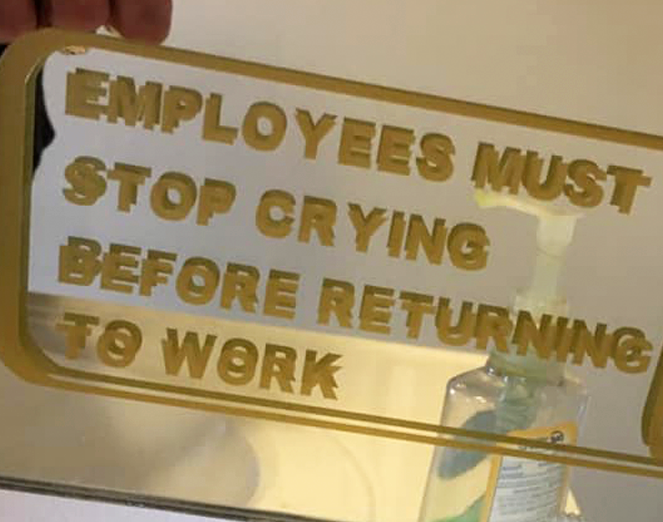

nor the desire to build their own shit
I would say that we’ve also largely lost the means to afford stuff built here, in large part as a consequence of our endless pursuit of cheap crap while scraping the bottom of the barrel with outsourcing. Even if you want to buy domestically-made goods, since we’ve lost so many of those good union jobs, especially in manufacturing, we no longer have the means to pay what it costs to make such a product with American workers. Especially if people intend to continue with their current consumerist trends.
I’m making $20/hour at the moment. If I want to buy American, union-made shoes, it’ll run me $400 a pair, on the lower end. I think it’s pretty reasonable to have a pair of work boots, a pair of regular shoes for wearing out and about, and a pair of dress shoes, which at that low end will run me 37.5% of my monthly gross pay. Now do the same for domestically produced clothing, and you’ve probably run up a bill of several month’s pay, just to have enough outfits to last you a single week, leaving aside coats, seasonal clothing, or formal attire. We’re either going to have to sharply curtail our purchasing and focus on buying a smaller amount of goods meant to last as long as possibly, or the sadly more likely scenario, we’ll see the establishment of domestic sweatshops to fuel the consumerist impulses of what remains of the middle class and up. Whether we’ll just go even more insane in our treatment of the poor here, or use prison labor and undocumented migrants “pending” deportation in these sweatshops remains to be seen, but Americans have demonstrated we shortsightedly value our ability to accumulate cheap trash over anything else.
I’d love to be proven wrong, and see a growth of strong unions and domestic production leading to a resurgence in American craftsmanship again, but the current environment is less than amenable to this outcome, to put it mildly.








I didn’t think you were, I was more saying that the loss of many of those jobs that had been outsourced in the pursuit of cheap stuff means that, even if Trump’s proposed tariffs were effective at bringing those jobs back, it might not matter because they would still cost more than most residents of the US would be able to afford. At least, with current working conditions, many of these goods would simply cost more than people would be willing to pay, as we’ve been collectively conditioned to want as much stuff as possible, as cheap as possible. Domestic production of so many goods would require a drastic shift in consumer habits to even have a chance at being viable in the long term, but they absolutely couldn’t do the sort of volume that places like China has and be able to sell at a profit, barring the implementation of Chinese-style working conditions.